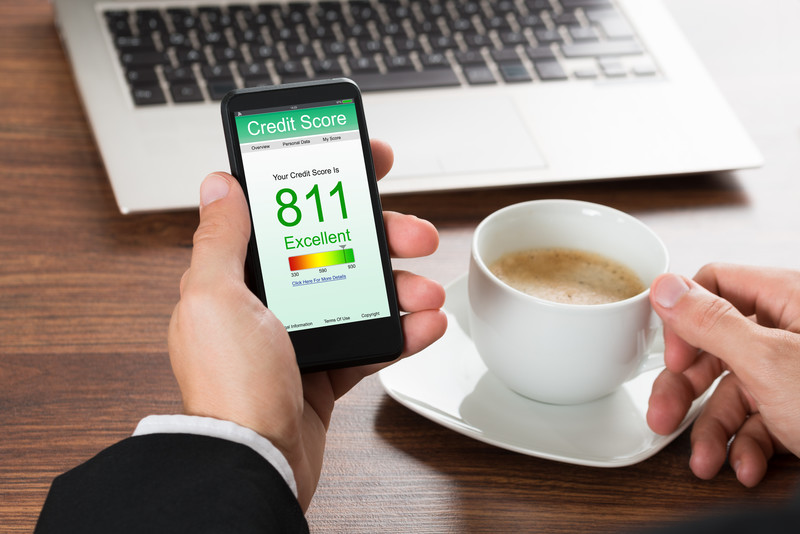If you’ve been curious about how to improve your credit score fast, you’re certainly not alone.
There are many benefits to building a strong credit profile, including access to better loan terms and interest rates, as well as greater financial flexibility. Many people start trying to figure out how to improve credit score when they want to buy a new home, vehicle, or other major purchase.
Although there is no quick fix to instantly improve credit scores, there are proven steps you can take to make noticeable progress over weeks or months.
In this Western Shamrock article, we explore how to raise credit scores with responsible financial strategies like paying bills on time and managing your credit utilization.
1. Consider the Most Important Credit-Score Factors
It’s vital to learn precisely what contributes to a credit score before even trying to figure out how to increase a credit score quickly.
Here are the five primary factors:
- Payment history (paying bills on time) – about 35%
- Amounts owed and credit utilization (how much available credit you’re using) – about 30%
- Credit history length (how long you’ve had accounts) – about 10%
- Credit mix (variety of credit types) – about 10%
- New inquiries (how often you apply for new credit) – about 10%
You can assess where you currently stand with potential creditors by reviewing your free credit reports from Equifax, Experian, and TransUnion. Look for weak spots in your reports and treat them as opportunities to improve your credit score.
2. Make All Your Payments on Time, Every Time
Since your payment history is the most significant factor in your credit score, always making on-time payments is often the best strategy for how to improve credit score fast. Even one late payment can harm your credit and stay on your report for seven years.
You can set up autopay or recurring reminders for every bill to avoid late payments. If you fall behind on a payment, catch up immediately and then stay on track with bills in the future. Tools like Experian Boost can help you improve your credit score by adding on-time rent and utility payments to your credit report.
Once you’re on a positive streak of on-time payments, you may see progress in your credit score improvement within a few billing cycles.
3: Reduce Credit Card Balances & Use Less Available Credit
Another approach for how to raise credit score fast is to reduce your credit utilization to under 30%, but ideally in the single digits. Reducing this ratio – your balance divided by your credit limit – could yield a credit score improvement within just one or two reporting cycles.
You can reduce your credit utilization by paying down high-balance credit cards first and by making multiple payments before the statement end date. You can also improve it by requesting a credit limit increase without the intention to spend that extra money available.
However, avoid closing old credit cards with high limits, as they keep your available credit higher.
4: Maintain Old Accounts to Build a Strong Credit History
Keeping old accounts open can also help increase a credit score over time. This is a slower approach to maintaining good credit rather than how to increase a credit score quickly.
Creditors and lenders value long and stable financial histories, and closing old accounts eliminates those histories. Although it may be enticing to close old accounts to simplify your wallet, avoid doing this. Instead, keep these cards open, perhaps with a small recurring charge you can pay off each month.
5: Limit New Credit Applications and Unnecessary Inquiries
To give your credit score a boost, you should also avoid applying for new credit and loans unless you genuinely need them. The hard inquiries required as part of the application process can cause a slight, temporary drop in credit score. However, too many inquiries within a short period could signal financial instability and increased risk.
When possible, take advantage of soft-pull prequalification offers before submitting full applications for new credit or loans. Hard inquiries remain on a credit report for up to two years, but typically only impact a credit score for about one year.
6: Diversify Your Credit Mix and Try Credit-Builder Tools
Managing the combination of different types of credit you have can also help you improve your credit score. Revolving credit, like credit cards and personal installment loans, makes up about 10% of your score.
To improve your credit mix, you can take out a secured credit card that requires a deposit but that will show up on your report like a regular credit card. You can also take out a credit-builder loan, like the ones we offer at Western Shamrock, to help you establish and build credit responsibly.
Another option is to become an authorized user on a long-standing, positive account of someone financially responsible whom you trust. With a diversified mix of credit, you could start seeing improvements in your score within several months to a year.
7: Regularly Review Credit Reports and Dispute Errors
Regardless of your credit score, it’s essential to review your credit report at least once a year, but ideally more often or at least before making a major purchase. With regular reviews, you can catch incorrect data, such as late payments that never occurred or fraudulent accounts that drag your score down.
Review your free credit reports for incorrect balances, unauthorized accounts, and misreported payment histories. Dispute errors and request corrections from the credit bureaus, and you could see an improvement in your score in as little as 30 to 45 days.
8: Monitor Your Progress and Maintain Good Habits
A final tip for how to improve credit score fast is to keep track of your progress with the steps listed above. You can download a free tracking tool or use a mobile credit app to monitor your credit health and get alerts when there are score changes.
Focus on making sustained improvements with on-time payments while watching for signs of identity theft and avoiding unnecessary credit applications. However, be realistic with your expectations with how to improve a credit score fast because significant improvements often take several months of consistency.
FAQ About How to Improve Credit Score
Western Shamrock is here to help you boost your credit score with flexible and affordable installment loans you can use for any purpose. We can also assist you with a sales line of credit and tax services to help you reach your financial goals.
Here are some of the most common questions our customers ask about how to improve credit score when they visit our Western Shamrock branches:
How quickly can I raise my credit score?
The fastest ways to improve your score are to pay down balances and to correct errors on your credit report. These approaches can show results in just a month or two.
Will paying off one credit card make a big difference?
Yes, lowering your credit utilization on even just a single credit card can have a significant, immediate impact. Consider paying off a credit card with the highest interest fee first to save the most money over time.
Does requesting a credit limit increase hurt my score?
Not necessarily, as it’s possible to actually improve your credit score by increasing your credit limit, as long as you don’t spend any more money than you would have before raising it. The request may trigger a slight, temporary dip in your score if a hard credit pull is required. However, that dip is often worth it if the increase improves your credit utilization ratio.
Can adding an authorized user really help me build credit?
Yes, but collaborate with someone who has a solid payment history and low credit utilization to maximize your credit score improvement.
What happens if I have a lot of debt in collections or a very low income?
It’s very possible to find a solution for how to improve a credit score fast, even if you are financially challenged or dealing with collection efforts. Start by paying off small collection amounts and setting up payment plans with your creditors. Consistent, on-time payments help everyone’s credit, regardless of their past circumstances.
If you’re ready to see how Western Shamrock can help you with your financial goals, please contact us, visit a local branch near you, or apply for a loan online today.
We understand how important a credit score can be to live comfortably and happily in your daily life. That’s why we’re here for you during all stages of your financial journey.








